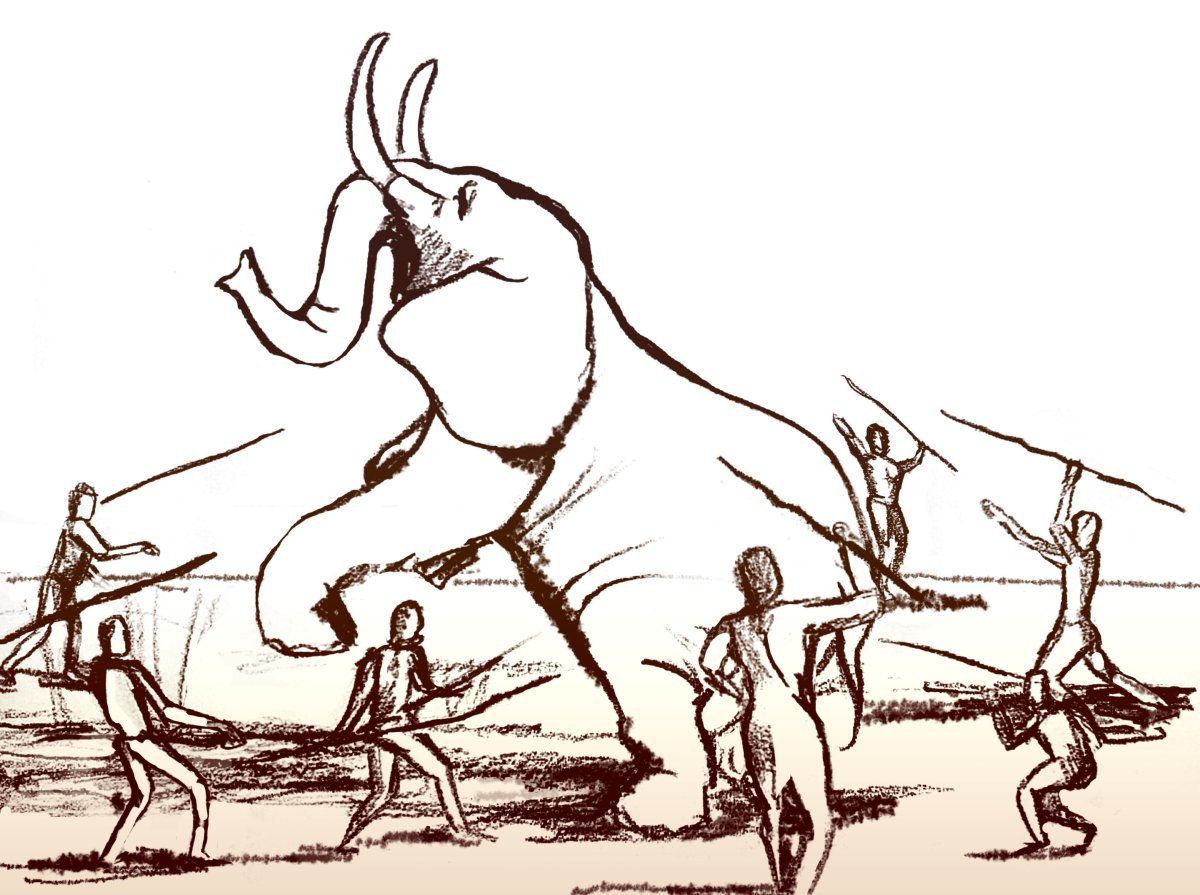Archaeologists have revealed a "Paleolithic holy trinity" among ancient humans: water, elephants and rocks.
Archeologists from Tel Aviv University presented this finding in the journal Archaeologies, and the study was led by Meir Finkel and Ran Barkai of the university's Jacob M. Alkow Department of Archaeology and Ancient Near Eastern Cultures.
The researchers have been studying flint quarrying and tool-making sites in Israel's Upper Galilee region for 20 years. These sites date back to the Lower Paleolithic period, which was around 3.3 million years ago. Here, prehistoric humans known as Homo erectus fashioned tools and left offerings. But so far it has been unclear why they visited these sites repeatedly, as flint, which was used to produce these tools, could be found in other places.

To find out more, they cross-referenced these sites with the elephants' migration routes at the time. They discovered that all of these locations were right next to the animals' migration paths. Elephants were a main food group for these early humans, who must have known to follow their migration routes, the study said.
In a statement, Barkai said: "Ancient humans required three things: water, food and stone. While water and food are necessities for all creatures, humans relied on stone tools to hunt and butcher animals, as they lacked the sharp claws or fangs of other predators.
"The question is, why do we find rock outcrops that were used for the production of flint tools surrounded by thousands of stone tools, and next to them, rock outcrops containing flint that was not used for the production of tools?" he asked.
Barkai went on: "A study of indigenous groups that lived until recently, with some still alive today, shows that hunter-gatherers attribute great importance to the source of the stone—the quarry itself—imbuing it with potency and sanctity, and hence also spiritual worship.
"People have been making pilgrimages to such sites for generations upon generations, leaving offerings at the rock outcrop while adjacent outcrops, equally suitable for stone tool production, remain untouched. We sought to understand why; what is special about these sites?" he said.
An elephant consumes 400 liters of water a day, meaning it is fixed to certain migration routes, Finkel said in a statement.
The study discovered many instances of elephant hunting at the sites studied. The researchers also found streams and rivers nearby, which would have attracted the elephants to the area.
"At the same time, given the absence of available means of preservation and the presence of predatory animals in the area, the window of opportunity for a group of hunter-gatherers to exhaust their elephant prey was limited," Finkel said.
"Therefore, it was imperative to prepare suitable cutting tools in large quantities in advance and nearby. For this reason, we find quarrying and knapping sites in the Upper Galilee located a short distance from elephant butchering sites, which are positioned along the elephants' movement paths," he said.
Further research showed that "the Paleolithic holy trinity" was universal during these ancient times. Where there was water, there were elephants, and where there were elephants, humans made stone tools to hunt.
"It was a tradition: For hundreds of thousands of years, the elephants wandered along the same route while humans produced stone tools nearby," Barkai said. "Ultimately, those elephants became extinct, and the world changed forever."
Do you have a tip on a science story that Newsweek should be covering? Do you have a question about archaeology? Let us know via science@newsweek.com.
Uncommon Knowledge
Newsweek is committed to challenging conventional wisdom and finding connections in the search for common ground.
Newsweek is committed to challenging conventional wisdom and finding connections in the search for common ground.
About the writer
Robyn White is a Newsweek Nature Reporter based in London, UK. Her focus is reporting on wildlife, science and the ... Read more
To read how Newsweek uses AI as a newsroom tool, Click here.








